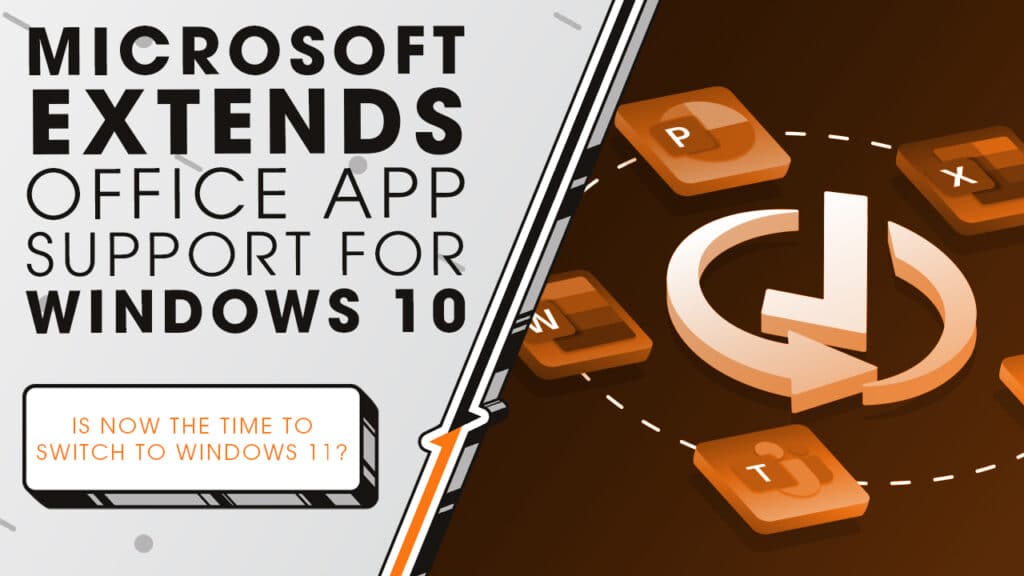Microsoft Extends Office App Support on Windows 10 | Sync Up

Microsoft said Office apps would stop getting updates on Windows 10 this year, but now they’re giving users more time. We’ll break down the reason for this surprise reversal, why it matters, and what you should do next as we sit down and sync up with Rocket IT’s weekly tech update.
In this episode, you’ll hear more about:
- Microsoft’s reversal of a major decision about Office app support.
- A surprising reason may be behind the change.
- One hardware requirement is holding many people back.
- How many users are on an older version of Windows.
- Why sticking with Windows 10 comes with growing risks.
Video Transcript
Back in January, Microsoft said it would stop supporting Microsoft 365 apps, like Word, Excel, and Outlook, on Windows 10 after October 14, 2025.
As you can imagine, for those who don’t want to transition to Windows 11, this announcement raised a lot of concerns. After that date, apps would still technically open, but you wouldn’t get any more updates or support, meaning potential security risks, performance issues, and reliability problems.
Now, Microsoft has changed its mind. As of May 2025, they’re now giving everyone a three-year grace period. So instead of ending support this October, they’ll continue sending security updates for Office apps on Windows 10 through October 2028.
So, what caused the backtrack? Microsoft hasn’t said officially, but many believe it comes down to adoption. Despite aggressive efforts, Windows 11 still hasn’t caught up. According to recent stats, Windows 10 is still running on over 52% of devices worldwide, while Windows 11 trails behind at just over 43%.
Microsoft has tried just about everything to get people to upgrade: Full-screen popups telling users to buy a new PC, calling 2025 the “Year of the Windows 11 PC refresh”, and even offering paid updates for users who want to stick with Windows 10.
But there’s one big hurdle: hardware requirements. Windows 11 requires a security chip called TPM 2.0—and many older devices just don’t have it. That makes the upgrade impossible without buying new hardware.
So, what happens if you stick with Windows 10? Your Office apps will keep working, but over time, they may get slower, less secure, or more prone to crashes. Microsoft is making it clear: if an issue happens only on Windows 10 and not Windows 11, their support team will tell you to upgrade.
So, yes, this three-year extension gives some breathing room. But don’t let it turn into a false sense of security. For individuals and businesses still on Windows 10, now is the time to plan. You’ll need to decide which devices can be upgraded, which need to be replaced, and establish a timeline before support finally runs out in 2028.
Related Posts
Subscribe to Rocket IT's Newsletter
Stay up to date on trending technology news and important updates.

Find out if Rocket IT is the right partner for your team
Claim a free consultation with a technology expert.










